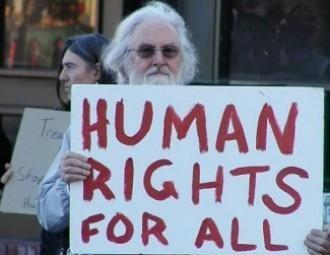Human rights conference on Belarus was held in Geneva

The conference on the human rights situation in Belarus was organized on May 27 by the Human Rights House Foundation.
International and Belarusian human rights defenders, relatives of political prisoners and the representative of the European Union at the United Nations were participating in the event. The conference was also attended by representatives of the International Federation for Human Rights (FIDH).
The participants worked within several sections. Thus, deputy head of the HRC “Viasna” Valiantsin Stefanovich and the Belarusian Helsinki Committee leader Aleh Hulak presented their vision of the overall situation in Belarus, stressing a transition from separate cases of harassment to the system of repression and systemic violations of human rights.
The issue of repression against opponents of the regime, in particular, the problem of politically motivated persecution and control over the media, was mentioned in their speeches by Hanna Herasimava, Director of the Barys Zvozskau Belarusian Human Rights House, Volodymyr Yavorsky, Working group on the development of the Guidelines on Definition of Political Prisoner and journalist Andrzej Poczobut.
The dangerous living conditions for the citizens associated with the use of forced labor, torture and the death penalty, were covered in a separate section by Valiantsin Stefanovich, a representative of the BHC in Vitebsk region, Pavel Levinau, and coordinator of the campaign “Human Rights Defenders against the Death Penalty in Belarus” Andrei Paluda.
Natallia Pinchuk and Maryna Adamovich, the wives of political prisoners Ales Bialiatski and Mikalai Statkevich, told about the detention conditions of their husbands, reminding Belarus still holds eight political prisoners, who are said to be in a critical situation.
An employee of the official representative of Belarus in Geneva came to the conference with MFA’s “alternative” report entitled “The Most Resonant Cases of Human Rights Violations in Certain Countries”, the official Minsk’s answer to the states that imposed sanctions against Belarus because of human rights violations, in particular, the U.S. and most EU countries.
The previous report of the UN Special Rapporteur on Belarus Miklos Haraszti, presented in October 2013, was criticized by the official Minsk, who said that the information provided in the report was untrue, and the mandate of the Special Rapporteur is that of a “detractor of Belarus”.
-
03.01
-
07.10
-
22.09
-
17.08
-
12.08
-
30.09



























